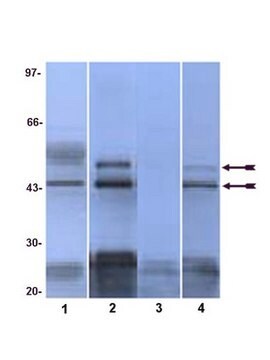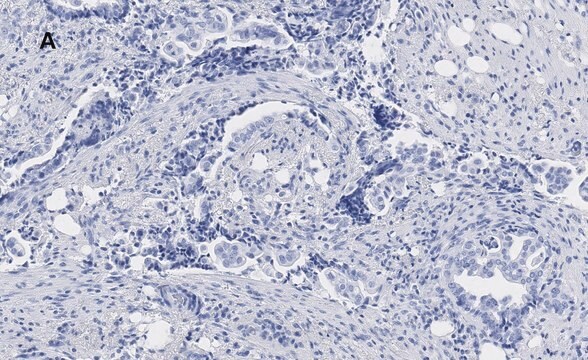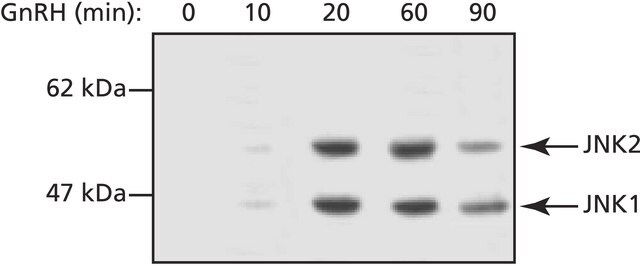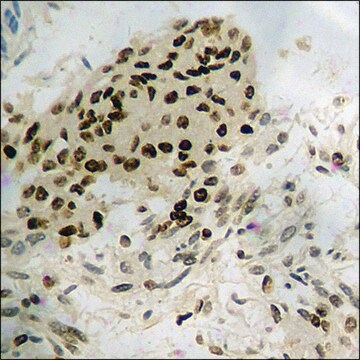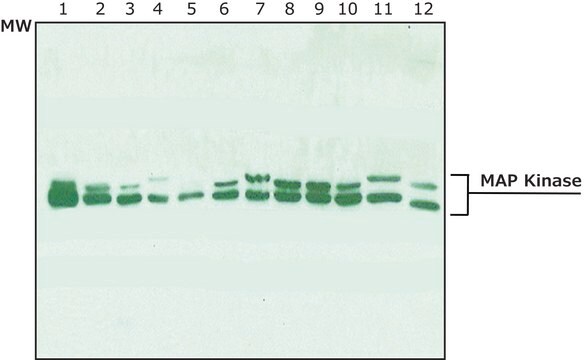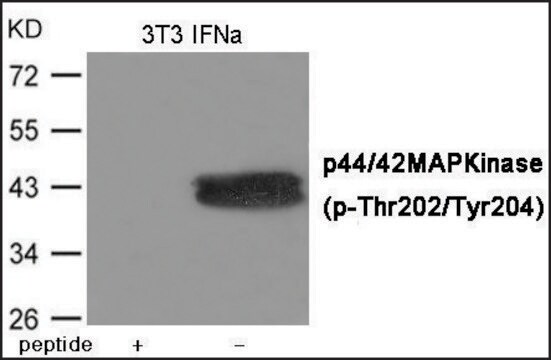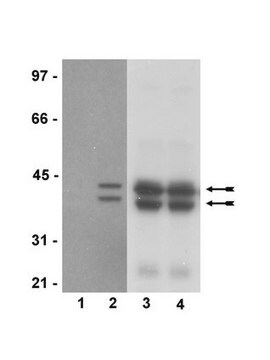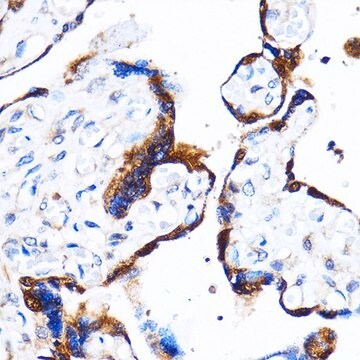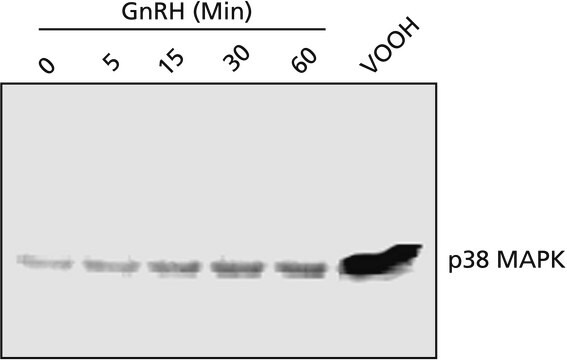Wichtige Dokumente
SAB4200176
Anti-JNK antibody, Mouse monoclonal
clone 1C2, purified from hybridoma cell culture
Synonym(e):
Anti-JNK-46, Anti-JNK1, Anti-JNK1A2, Anti-JNK21B1/2, Anti-JUN N-terminal kinase, Anti-MAP kinase 8, Anti-MAPK8, Anti-PRKM8, Anti-SAPK1, Anti-stress-activated protein kinase 1
About This Item
Empfohlene Produkte
Biologische Quelle
mouse
Konjugat
unconjugated
Antikörperform
purified immunoglobulin
Antikörper-Produkttyp
primary antibodies
Klon
1C2, monoclonal
Mol-Gew.
antigen ~43 kDa
Speziesreaktivität
mouse, rat, human
Konzentration
~1.0 mg/mL
Methode(n)
western blot: 1-2 μg/mL using using whole extracts of mouse NIH-3T3 cells
Isotyp
IgG2a
UniProt-Hinterlegungsnummer
Versandbedingung
dry ice
Lagertemp.
−20°C
Posttranslationale Modifikation Target
unmodified
Angaben zum Gen
human ... MAPK8(5599)
mouse ... Mapk8(26419)
rat ... Mapk8(116554)
Allgemeine Beschreibung
Anwendung
Biochem./physiol. Wirkung
Monoclonal Anti-JNK antibody is specific for human, mouse and rat JNK1 (43 kDa) and/or JNK2 (55 kDa).
Physikalische Form
Haftungsausschluss
Sie haben nicht das passende Produkt gefunden?
Probieren Sie unser Produkt-Auswahlhilfe. aus.
Lagerklassenschlüssel
10 - Combustible liquids
Flammpunkt (°F)
Not applicable
Flammpunkt (°C)
Not applicable
Hier finden Sie alle aktuellen Versionen:
Analysenzertifikate (COA)
Die passende Version wird nicht angezeigt?
Wenn Sie eine bestimmte Version benötigen, können Sie anhand der Lot- oder Chargennummer nach einem spezifischen Zertifikat suchen.
Besitzen Sie dieses Produkt bereits?
In der Dokumentenbibliothek finden Sie die Dokumentation zu den Produkten, die Sie kürzlich erworben haben.
Kunden haben sich ebenfalls angesehen
Global Trade Item Number
| SKU | GTIN |
|---|---|
| SAB4200176-25UL | |
| SAB4200176-200UL | 4061837012969 |
Unser Team von Wissenschaftlern verfügt über Erfahrung in allen Forschungsbereichen einschließlich Life Science, Materialwissenschaften, chemischer Synthese, Chromatographie, Analytik und vielen mehr..
Setzen Sie sich mit dem technischen Dienst in Verbindung.